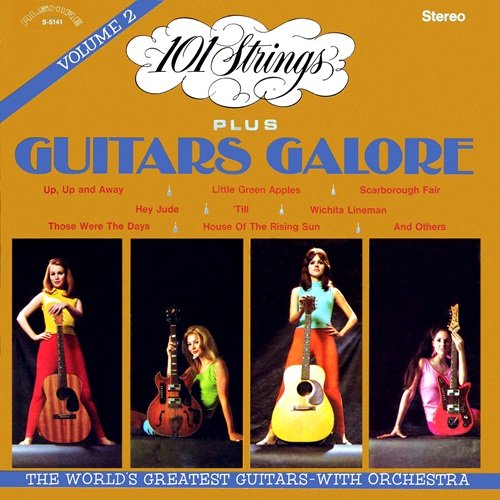The King'S Consort, Robert King - Handel: Joshua (1991)
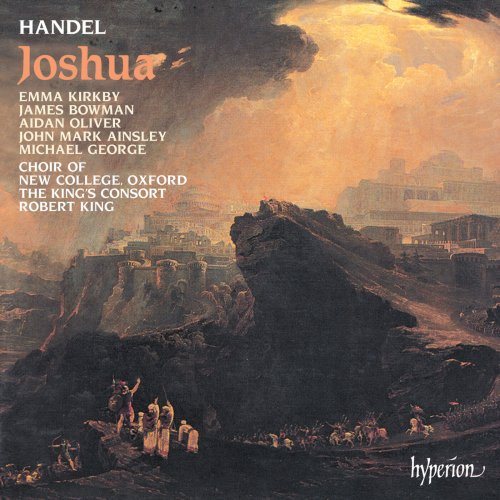
Artist: The King'S Consort, Robert King
Title: Handel: Joshua
Year Of Release: 1991
Label: Hyperion
Genre: Classical
Quality: flac lossless (tracks) +Booklet
Total Time: 02:04:41
Total Size: 501 mb
WebSite: Album Preview
TracklistTitle: Handel: Joshua
Year Of Release: 1991
Label: Hyperion
Genre: Classical
Quality: flac lossless (tracks) +Booklet
Total Time: 02:04:41
Total Size: 501 mb
WebSite: Album Preview
CD1
01. Joshua, HWV 64, Pt. 1: No. 1. Introduction
02. Joshua, HWV 64, Pt. 1: No. 2, Chorus. Ye Sons of Israel, Ev'ry Tribe Attend
03. Joshua, HWV 64, Pt. 1: No. 3, Recit. Behold, My Friends, What Vast Rewards Are Giv'n (Joshua/Caleb)
04. Joshua, HWV 64, Pt. 1: No. 4, Air. O First in Wisdom, First in Pow'r (Caleb)
05. Joshua, HWV 64, Pt. 1: No. 5, Recit. Matrons and Virgins, with Unwearied Pray'r (Achsah)
06. Joshua, HWV 64, Pt. 1: No. 6, Air. Oh! Who Can Tell, Oh! Who Can Hear (Achsah)
07. Joshua, HWV 64, Pt. 1: No. 7, Recit. Caleb, Attend to All I Now Prescribe (Joshua)
08. Joshua, HWV 64, Pt. 1: No. 8, Solo & Chorus. To Long Posterity We Here Record (Joshua/Chorus)
09. Joshua, HWV 64, Pt. 1: No. 9, Accompagnato. So Long the Memory Shall Last (Joshua)
10. Joshua, HWV 64, Pt. 1: No. 10, Air. While Kedron's Brook to Jordan's Stream (Joshua)
11. Joshua, HWV 64, Pt. 1: No. 11, Recit. But, Who Is He? – Tremendous to Behold! (Othniel)
12. Joshua, HWV 64, Pt. 1: No. 12, Air. Awful, Pleasing Being, Say (Othniel)
13. Joshua, HWV 64, Pt. 1: No. 13, Recit/Accompagnato. Joshua, I Come Commission'd from on High (Angel/Joshua)
14. Joshua, HWV 64, Pt. 1: No. 14, Air. Haste, Israel Haste (Joshua)
15. Joshua, HWV 64, Pt. 1: No. 15, Chorus. The Lord Commands, and Joshua Leads
16. Joshua, HWV 64, Pt. 1: No. 16, Accompagnato/Recit. In These Blest Scenes, Where Constant Pleasure Reigns (Othniel/Achsah)
17. Joshua, HWV 64, Pt. 1: No. 17, Air. Hark! 'Tis the Linnet and the Thrush (Achsah)
18. Joshua, HWV 64, Pt. 1: No. 18, Recit. O Achsah, Form'd for Ev'ry Chaste Delight (Othniel)
19. Joshua, HWV 64, Pt. 1: No. 19, Duet. Our Limpid Streams with Freedom Flow (Achsah/Othniel)
20. Joshua, HWV 64, Pt. 1: No. 20, Flourish/Recit. The Trumpet Calls; Now Jericho Shall Know (Othniel)
21. Joshua, HWV 64, Pt. 1: No. 21, Chorus. May All the Host of Heav'n Attend Him Round
22. Joshua, HWV 64, Pt. 2: No. 1, Recit. 'Tis Well; Six Times the Lord Hath Been Obey'd (Joshua)
23. Joshua, HWV 64, Pt. 2: No. 2. Solemn March During the Circumvection of the Ark of the Covenant
24. Joshua, HWV 64, Pt. 2: No. 3, Chorus & Solo. Glory to God! The Strong Cemented Walls (Chorus/Joshua)
25. Joshua, HWV 64, Pt. 2: No. 4, Recit. The Walls Are Levell'd (Caleb)
26. Joshua, HWV 64, Pt. 2: No. 5, Air. See, the Raging Flames Arise (Caleb)
27. Joshua, HWV 64, Pt. 2: No. 6, Air. To Vanity and Earthly Pride (Achsah)
CD2
01. Joshua, HWV 64, Pt. 2: No. 7, Recit. Let All the Seed of Abrah'm Now Prepare (Joshua)
02. Joshua, HWV 64, Pt. 2: No. 8, Chorus & Solo. Almighty Ruler of the Skies (Chorus/Joshua)
03. Joshua, HWV 64, Pt. 2: No. 9, Recit. Joshua, the Men Dispatch'd by Thee to Learn (Caleb)
04. Joshua, HWV 64, Pt. 2: No. 10, Chorus of the Defeated Israelites. How Soon Our Tow'ring Hopes Are Cross'd!
05. Joshua, HWV 64, Pt. 2: No. 11, Recit. Whence This Dejection? Rouse Your Coward Hearts (Joshua)
06. Joshua, HWV 64, Pt. 2: No. 12, Air & Chorus. With Redoubled Rage Return (Joshua/Chorus)
07. Joshua, HWV 64, Pt. 2: No. 13, Recit. Now Give the Army Breath; Let War Awhile (Othniel)
08. Joshua, HWV 64, Pt. 2: No. 14, Air. Heroes When with Glory Burning (Othniel)
09. Joshua, HWV 64, Pt. 2: No. 15, Recit. Indulgent Heav'n Hath Heard My Virgin Pray'r (Achsah)
10. Joshua, HWV 64, Pt. 2: No. 16, Air. As Cheers the Sun the Tender Flow'r (Achsah)
11. Joshua, HWV 64, Pt. 2: No. 17, Recit. Sure I'm Deceiv'd, with Sorrow I Behold (Caleb/Othniel)
12. Joshua, HWV 64, Pt. 2: No. 18, Air. Nations, Who in Future Story (Othniel)
13. Joshua, HWV 64, Pt. 2: No. 19, Recit. Brethren and Friends, What Joy This Scene Imparts (Joshua/Caleb)
14. Joshua, HWV 64, Pt. 2: No. 20, Air & Chorus. Oh! Thou Bright Orb, Great Ruler of the Day! (Joshua/Chorus)
15. Joshua, HWV 64, Pt. 3: No. 1, Chorus. Hail! Mighty Joshua, Hail! Thy Name
16. Joshua, HWV 64, Pt. 3: No. 2, Air. Happy, Oh, Thrice Happy We (Achsah)
17. Joshua, HWV 64, Pt. 3: No. 3, Recit. Caleb, for Holy Eleazer Send (Joshua/Caleb)
18. Joshua, HWV 64, Pt. 3: No. 4, Air. Shall I in Mamre's Fertile Plain (Caleb)
19. Joshua, HWV 64, Pt. 3: No. 5, Recit. O Caleb, Fear'd by Foes, by Friends Ador'd (Othniel/Caleb)
20. Joshua, HWV 64, Pt. 3: No. 6, Air. Place Danger Around Me (Othniel)
21. Joshua, HWV 64, Pt. 3: No. 7, Chorus. Father of Mercy, Hear the Pray'r We Make
22. Joshua, HWV 64, Pt. 3: No. 8, Recit. In Bloom of Youth, This Stripling Hath Achiev'd (Joshua)
23. Joshua, HWV 64, Pt. 3: No. 9, Chorus. See the Conqu'ring Hero Comes!
24. Joshua, HWV 64, Pt. 3: No. 10, Recit. Welcome! My Son, My Othniel, Good and Great! (Caleb/Othniel/Achsah)
25. Joshua, HWV 64, Pt. 3: No. 11, Air. Oh! Had I Jubal's Lyre (Achsah)
26. Joshua, HWV 64, Pt. 3: No. 12, Recit. While Life Shall Last, Each Moment We'll Improve (Othniel)
27. Joshua, HWV 64, Pt. 3: No. 13, Duet. O Peerless Maid, with Beauty Blest (Othniel/Achsah)
28. Joshua, HWV 64, Pt. 3: No. 14, Recit. While Lawless Tyrants, with Ambition Blind (Caleb)
29. Joshua, HWV 64, Pt. 3: No. 15, Chorus. The Great Jehovah Is Our Awful Theme
Amongst Handel’s later Oratorios, Joshua was one of the most successful. Of those composed after Samson, only Judas Maccabaeus received more performances during the composer’s lifetime, and much of this popularity was due to the insertion after the first season’s performances of ‘See the conqu’ring hero comes’, first written for Joshua.
Handel began the score of Joshua on 19 July 1747, just two weeks after completing Alexander Balus, and Act I was completed eleven days later. Act II took an even shorter time, finished on 8 August, and the whole work was completed by 19 August. The premiere took place at Covent Garden on 9 March 1748 and was followed by another three performances. Mrs Delany, who had proved such a good diarist of Handel’s financial state in previous years, had moved to Ireland with her husband, but turning to Handel’s bank statements we see that after the first concert he deposited £300, after the second £200 and after the third another £100. We do not know how much he paid his orchestra, although he withdrew £990 on 19 March, but by the start of May he was in a position to deal in annuities to the tune of £4500, suggesting that this particular Lenten season had been a great success at the box office.
Joshua certainly rated highly with Eliza Heywood who, writing in Epistles for the Ladies, (1749) was:
transported into the most divine Exstacy. I closed my Eyes, and imagined myself amidst the angelic Choir in the bright Regions of everlasting Day, chanting the Praises of my great Creator, and his ineffable ‘Messiah’. I seemed, methought, to have nothing of this gross Earth about me, but was all Soul!—all Spirit.
In Dublin after a rehearsal for the first of three annual performances in 1751, conducted by Bartholomew Manwaring for the charity of the Hospital for Incurables, Mrs Delany wrote to Mrs Dewes that she was ‘charmed with it—never heard it before’. An open letter from ‘A Virtuoso’ was printed in The General Advertiser of 13 March 1749 appealing for a revival of Joshua to satisfy ‘a Number of your Friends’, but Handel did not, in the event, oblige until 1752, when he made a number of alterations, including expanding the overture by adding the fugue and courante from the Solomon overture. In 1754 he gave a further single performance, inserting five movements, four of which were based on the Occasional Oratorio. Further performances took place in Salisbury in 1754 and in Oxford in 1756, and there were performances in London, though probably not under Handel’s direction, in 1755 and 1759. Later generations did not ignore the work, for Joshua was heard at the Three Choirs Festival in 1759, 1769, 1773 and 1781, at the Oxford Music Room in 1766, 1768 and 1773, in Salisbury in 1771 and at least four times in Winchester between 1770 and 1783. In the nineteenth century it was heard in Berlin in 1827 and 1832, and the Sacred Harmonic Society performed the work in London in 1839, setting the fashion for performances in Holland, Germany and England. Only the later twentieth century seems largely to have ignored the work.
Joshua was one of a quartet of oratorios written consecutively between 1746 and 1748 which have heavily militaristic overtones. The first of these was the Occasional Oratorio, performed three times at Covent Garden in 1746 and three more times in 1747. Judas Maccabaeus followed in 1747, extraordinarily popular in receiving at least 33 performances during the composer’s lifetime, and Joshua and Alexander Balus were premiered at Covent Garden on March 9 and March 23 in Handel’s 1748 oratorio season. It seems clear that, following Judas Maccabaeus, Handel and his librettist Thomas Morell were intent on repeating the formula of a Jewish hero and triumphing choruses that had been so successful, adding this time the romantic sub-plot that Judas had lacked. Scarcely recovered from his efforts on Alexander Balus, Morell took his libretto from a bloodthirsty account in the Old Testament ‘Book of Joshua’, condensing the campaigns against Jericho, Ai and the five Kings into one dramatic block, and enlarging the parts taken by Othniel and Achsah to provide the romantic foil necessary to break up and contrast with an otherwise almost continuously warlike story.
Handel’s extraordinary speed of composition must have tested Morell to the limit, and the result is perhaps more a series of incidents than a developed plot. But the characters are strong, with Joshua a commanding (if at times insufferably conceited) hero, Caleb a suitably patriarchal leader nearing retirement from the battlefield, his daughter Achsah a concerned, sometimes reproving character, betrothed to Othniel who is finding it hard to strike a balance between playing the young warrior and the devoted lover. There is an additional part, small but vital, for an Angel, named in a later score as having been sung by a tenor, but widely assumed to have been played in the earlier performances by the more expected soprano or boy treble.
As with many of Handel’s oratorios, later performances saw many revisions to the original score for all sorts of reasons, not always musical. The version recorded here follows that of the 1748 performances, one concession being the inclusion of Handel’s undated (1752?) alteration to the second half of ‘Hark! ’tis the linnet’: this is the only change he later made which does not affect the original sequence of movements. The choral and orchestral forces recorded here are similar in scale to those that Handel used in his performances, although we have included a few more trebles. Handel had surprisingly few boys to sing the top line of his choruses, though with voices breaking so much later in those days we can assume that some of them would have been powerful singers, but his solo singers usually joined in the tuttis (which must have made for an exhausting evening’s work). Our twentieth century choir needed no such assistance, but our Angel soloist follows historical precedent and sings in the choruses too! At three points in the score Handel indicates that brass fanfares are to be inserted, giving a short rhythmic cue over which the players (led by the principal trumpeter) would have improvised the necessary music. Our principal trumpeter’s fanfares recorded here follow eighteenth century examples.
Handel’s lavish scoring of the oratorio suggests that he was financially secure in his performances, for the large orchestra contains pairs of flutes, trumpets and horns, and timpani besides the expected strings, oboes and bassoons, and following eighteenth century accounts we have included harpsichord, organ and archlute as continuo instruments. Handel’s most powerful writing in Joshua utilises the brass and timpani to the full, with music of great effectiveness. With dramatic incidents such as the tumbling walls of Jericho, the razing by fire of the city, Joshua stopping the sun and moon in their tracks and his rousing an army of depressed troops, not to mention the triumphal return of the warrior after battle, here was heroic material to stimulate any composer. Perhaps not surprisingly, the destruction of Jericho in the second Act leads Handel into one of his greatest thunder choruses, and one which impressed Haydn at a large-scale performance in Westminster Abbey in 1791. He is reported as having:
long been acquainted with [the] music, but never knew half its powers before he heard it, and he was perfectly certain that only one inspired Author ever did, or ever would pen so sublime a composition.
Similarly the ‘Solemn March during the circumvection of the Ark of the Covenant’ which precipitates the destruction is one of Handel’s finest, startling in its huge solemnity, and Caleb’s following aria ‘See the raging flames arise’ a marvellous piece of drama. Othniel’s ‘Place danger around me’ too is a splendid Handelian aria. Joshua was also the original source for the chorus ‘See the conqu’ring hero comes’, which was only added to Judas Maccabaeus once its potential was realised after the first performances of Joshua. But the quieter, more contemplative moments too deserve mentions, with Caleb’s resigned aria ‘Shall I in Mamre’s fertile plain’, the hymn-like chorus which follows from it, the chorus of defeated Israelites ‘How soon our tow’ring hopes are cross’d’, and Othniel’s ‘Nations who in future story’ all examples of Handel’s lyrical style at its best. In between the triumphs and disasters of battle, the scenes with Achsah lend further contrast, providing arias ranging from the wistful ‘Oh, who can tell’, through the birdcalls of ‘Hark! ’tis the linnet’ to the joyful, ever-popular ‘Oh had I jubal’s lyre’.
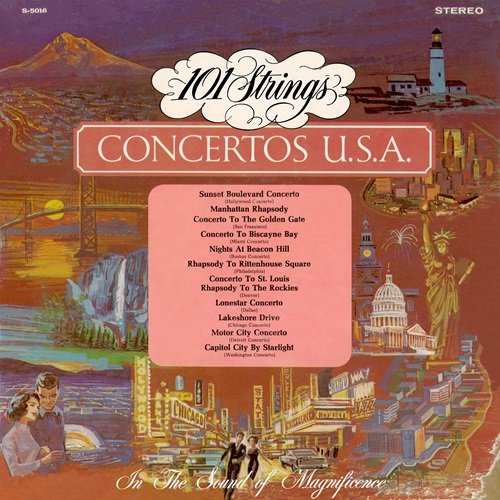
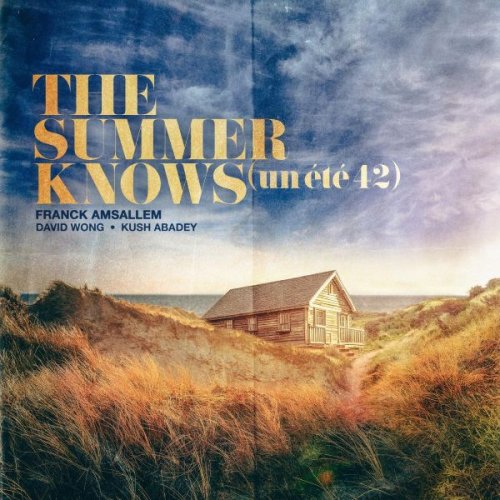
![Makoto Ozone - For Someone (2026) [Hi-Res] Makoto Ozone - For Someone (2026) [Hi-Res]](https://img.israbox.com/img/2026-01/25/to73l8ebxojw7ngwctdtfpoiw.jpg)
![Victor Anton - Nudos (Música Inevitable) (2026) [Hi-Res] Victor Anton - Nudos (Música Inevitable) (2026) [Hi-Res]](https://www.dibpic.com/uploads/posts/2026-01/1769244561_bd2vnugjkvmff_600.jpg)
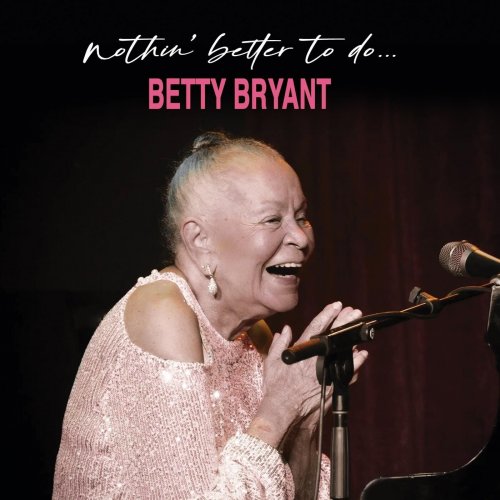
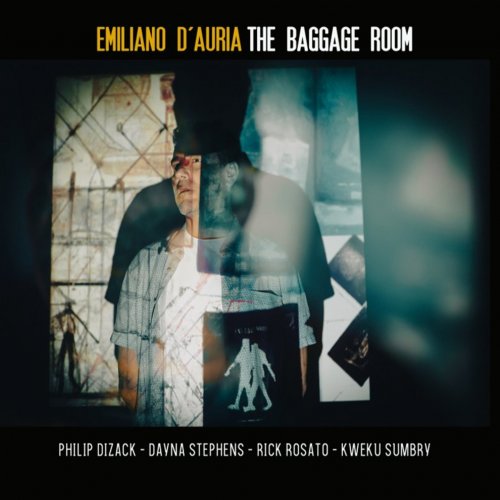
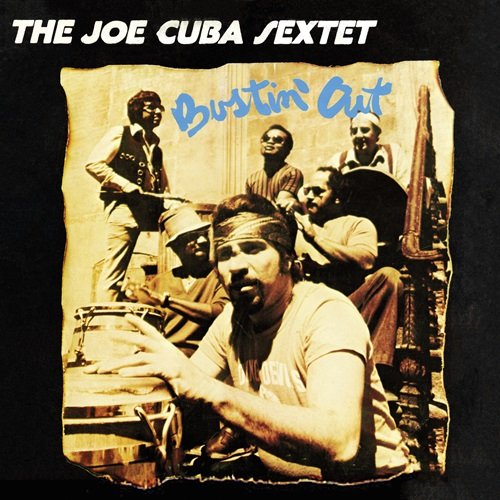
![John Ellis & Double Wide - Fireball (2026) [Hi-Res] John Ellis & Double Wide - Fireball (2026) [Hi-Res]](https://www.dibpic.com/uploads/posts/2026-01/1769024773_gle3eu5z1g2du_600.jpg)
